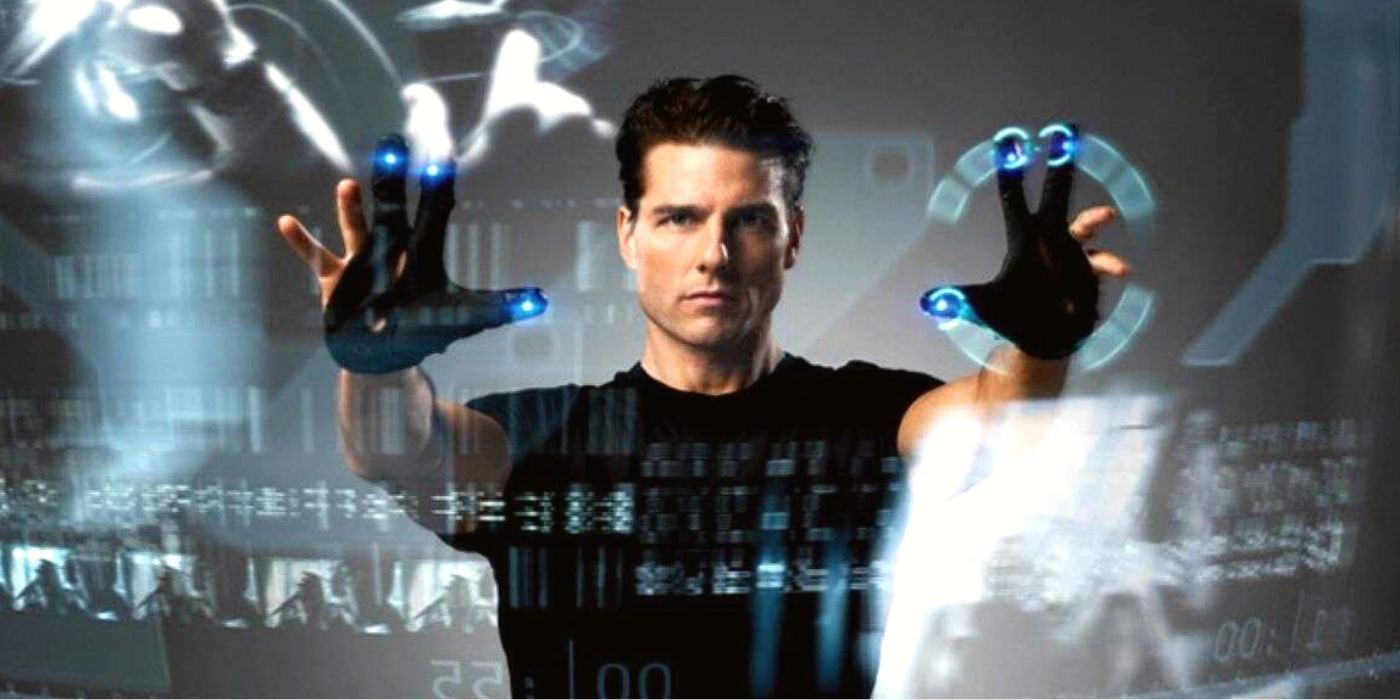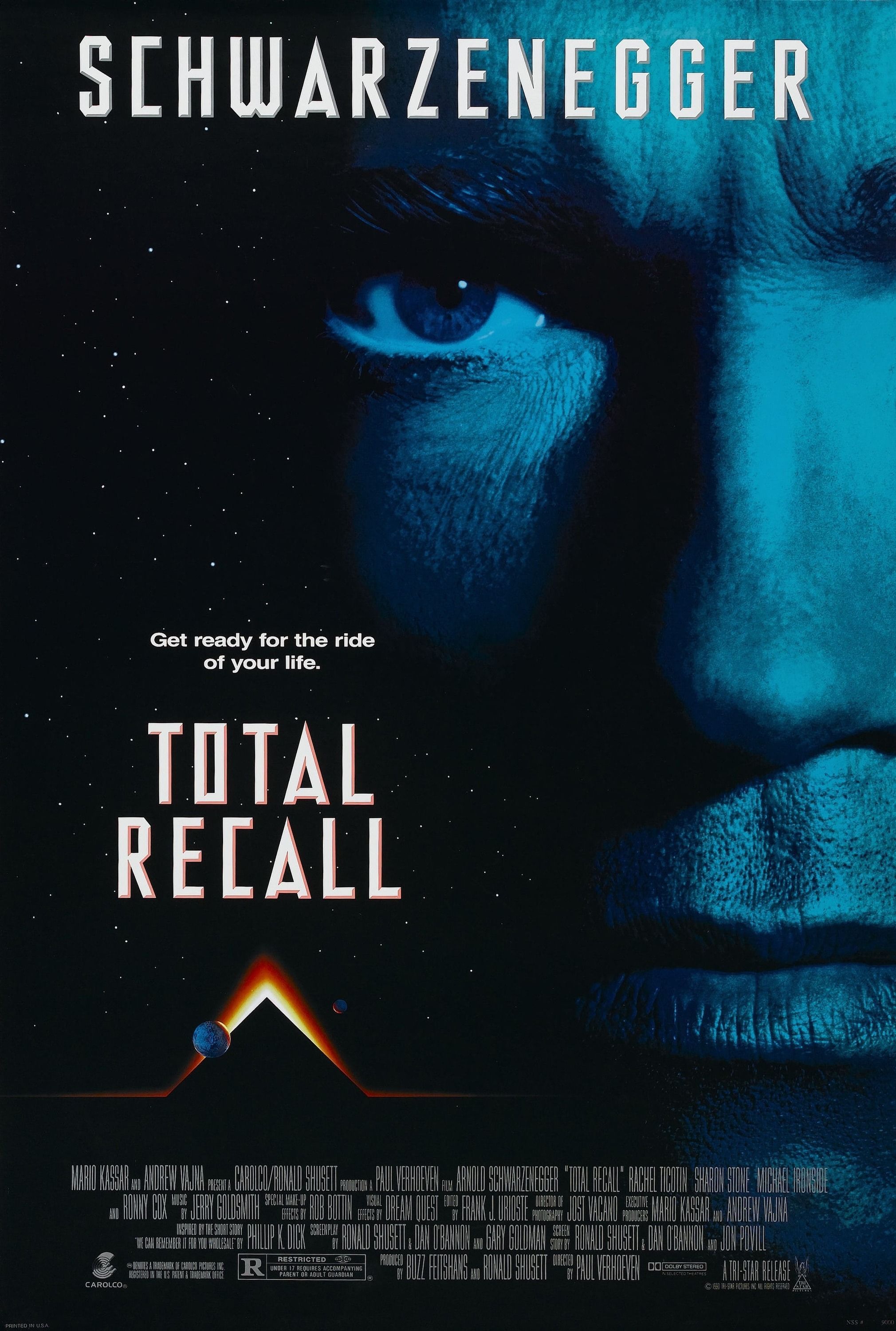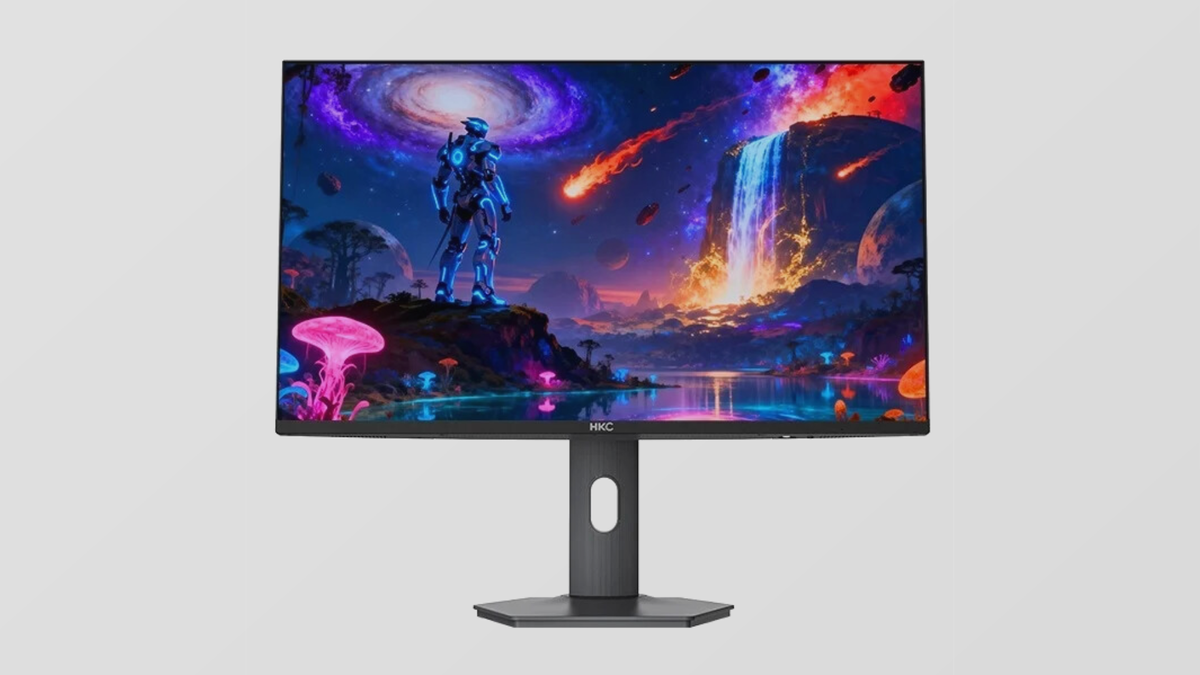1990’s Total Recall was a game-changer in the film career of Arnold Schwarzenegger. After years of establishing himself with high-concept action programmers like Commando and The Running Man, Schwarzenegger proved with his role as Douglas Quaid he could handle an intelligent sci-fi thriller based on Philip K. Dick’s short story, “We Can Remember It for You Wholesale." It was not long before Carolco Pictures demanded a sequel, as director Paul Verhoeven and the writers had their sights on another Dick story: Minority Report.
The works of the acclaimed sci-fi author were always an uphill battle to bring to the screen. His first novel brought to the screen, Blade Runner in 1982, had a troubled production and underperformed at the box office despite gaining cult status in later years. Additionally, Recall’s initial production plans with Patrick Swayze as Quaid fell through after producer Dino De Laurentiis went bankrupt, prompting Schwarzenegger to get the film rights over to Carolco. Recall’s success reignited interest in Dick’s work, with Minority Report’s premise seen as a potential continuation to Quaid’s journey.
'Total Recall 2' Had Its Premise Set Up in the Original Movie
The sequel business in the late ‘80s and early ‘90s was still a new trend in Hollywood. While popular movies such as The Godfather and Star Wars managed to exceed expectations with their respective continuations, most sequels often failed to recapture lightning in a bottle. According to the book Tales from Development Hell by David Hughes, Recall co-writer Gary Goldman wanted to capitalize on the film’s success by optioning Minority Report as his low-budget directorial debut. Dick’s 1956 novella about a future where a police force uses mutant “precogs” to foresee murders before they’re committed had thematic similarities to Recall’s disruption of reality and the manipulation of one’s life.
To add legitimacy to the project, Goldman approached Verhoeven about serving as an executive producer. Surprisingly, however, Verhoeven saw potential in Minority Report being repurposed as a Recall sequel instead. While the original ended on a triumphant, yet ambiguous note questioning the reality of the adventure that Quaid had experienced in saving Mars from the corrupt bureaucrat Vilos Cohaagen (Ronny Cox), the film had a subtle setup with a mutant child and her mother predicting the hero’s birthday. With the established concept of the mutants on Mars having psychic abilities, the Recall sequel would have seen similar characters as the “precogs” with Quaid as the head of the Pre-Crime unit thanks to his heroics in the previous film.
As Goldman explained in the Tales book, Verhoeven was interested in “the possibility of doing a sequel that seemed original, not repetitive or derivative." Years earlier, Verhoeven passed on RoboCop 2 with the belief more time was needed to take the story in a different direction. While a Recall sequel with the Report premise would have retained the relentless chase and uptempo violence that made the original so memorable, the story would likely have leaned less on Quaid facing a crisis of identity and more on trust in a flawed system while questioning free will.
Carolco's Bankruptcy Caused 'Minority Report' To Move to Fox
 Image via 20th Century Studios
Image via 20th Century Studios
By 1994, Total Recall 2 was moving along well with Schwarzenegger, Verhoeven, Goldman, and original co-writer Ron Shusett all on board. Schwarzenegger, in particular, needed more hits after the disappointing Last Action Hero as he was eager to work with Verhoeven on Recall 2 and the unproduced epic war movie Crusade. Between Carolco’s overspending and the financial failure of 1994’s Cutthroat Island, however, the studio fell into bankruptcy, which ceased production plans for Recall 2.
After the bankruptcy, Recall 2 was sold off to Miramax but without the Minority Report premise. With the underlying rights to the Dick story being sent back to Goldman and Shusett, the project went into turnaround to 20th Century Fox, where Speed director Jan De Bont eyed it as a potential follow-up. But shortly after the failure of 1999’s The Haunting, De Bont lost the job to Steven Spielberg, whose surprisingly dark take on Report starring Tom Cruise would lean closer to the moody noir tone of Blade Runner than the action-packed Schwarzenegger epic.
As fun as the prospect of a Minority Report-inspired premise for Total Recall 2 would have been, the concept of a sequel in general was likely a bullet dodged in Schwarzenegger’s career. The original Recall succeeds in part because of its thinking-man approach to the story. The narrative often questions Quaid’s journey as one of self-discovery of a past life or simply a fantastical escape from reality. Its loose-ended conclusion is on par with John Carpenter’s The Thing as a never-ending conversation among cinephiles. A Recall sequel would have ruined the potential big surprise.

Total Recall
Release Date June 1, 1990
Runtime 113 minutes
Director Paul Verhoeven
Writers Dan O'Bannon, Gary Goldman, Ronald Shusett









 English (US) ·
English (US) ·